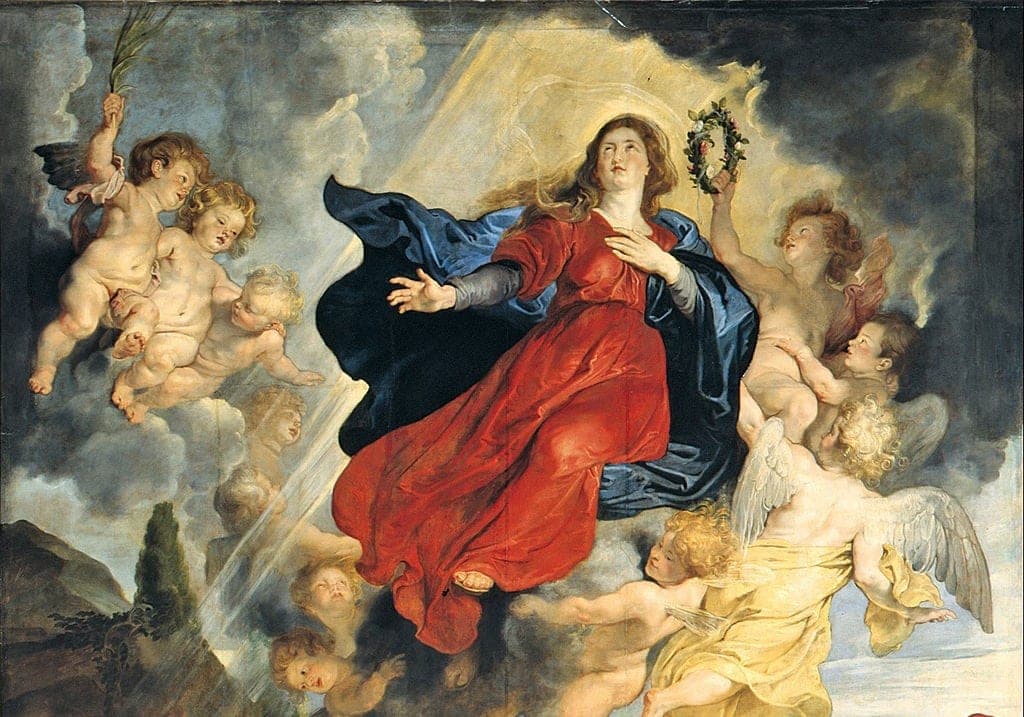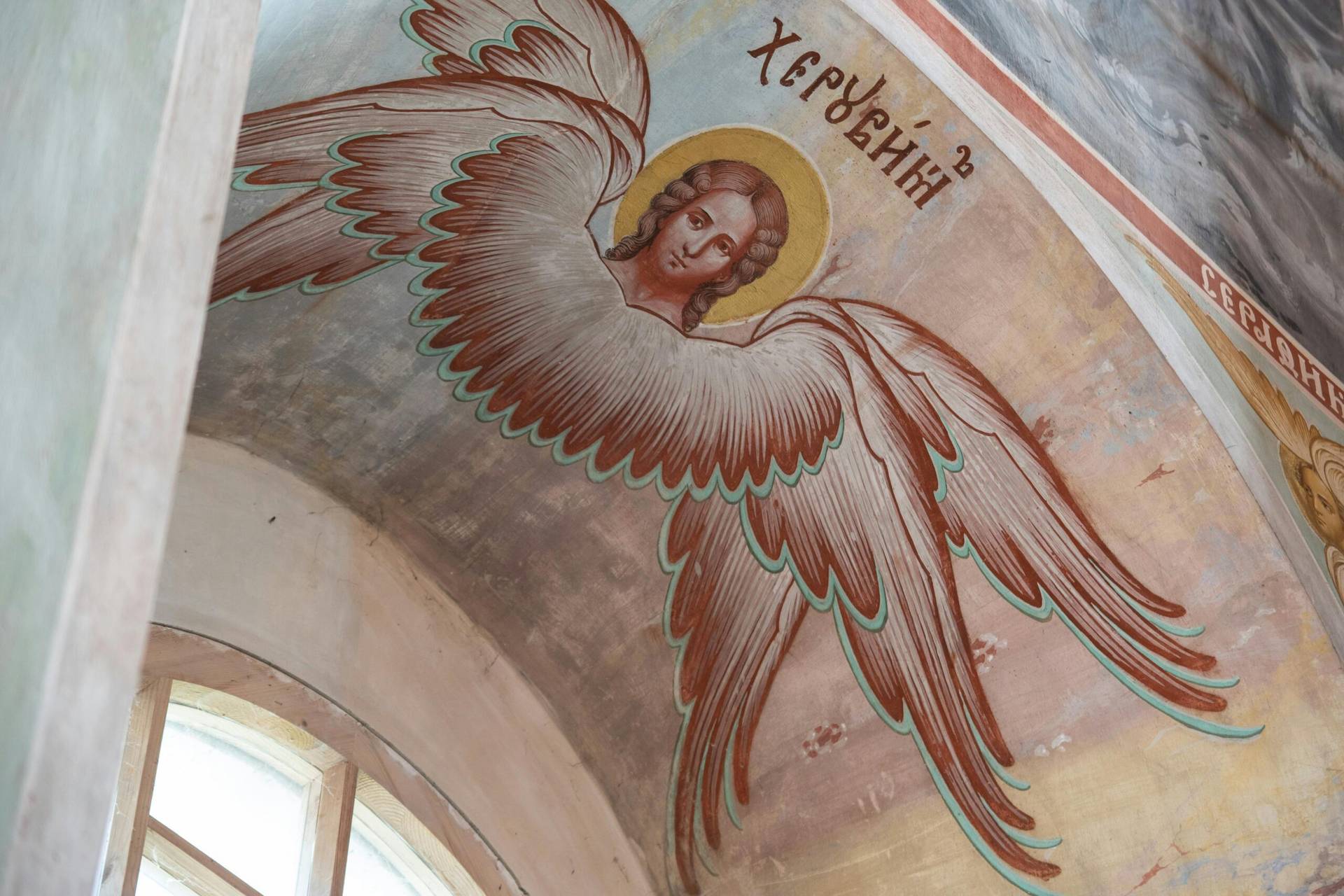Much of Western culture today is centered around the personal effort of people trying to find themselves. Questions abound: Who am I? What’s my role in life? What makes me happy?
These are all gracious questions that are good to ask of ourselves. The challenge, however, is where we’re willing to look to find answers. Oftentimes, we can fall into the trap of thinking that we can answer our own questions by ourselves. Such answers often prove incomplete, superficial, many times unconvincing, and a source of further frustration and restlessness.
Perhaps it’s time to look outside ourselves and beyond our own self-horizon?
As a help to breaking this navel-gazing, the Church offers us the annual solemnity of the Assumption. The high feast day is celebrated on August 15 and is a sacramental memorial of the end of the earthly life of Mary of Nazareth. As she left her last in this life, Mary was assumed – body and soul – into paradise by her divine Son, Jesus Christ. The event is accentuated by its uniqueness.
In Christian theology, as we die, our souls receive their eternal rewards. Our bodies, however, must live out the consequences of sin. After their death, they rest in the earth and become dust. Time takes its toll. For most of us, our bodies have to wait until the end of time. When the heavens and the earth conclude, then our own bodies will experience a resurrection. We will have glorified bodies and they will join our souls in eternity. This is the path for most of us.
Mary of Nazareth is different, and for obvious reasons. The Scriptures explain that Mary was “overshadowed” by the Holy Spirit. The expression is a deeply biblical one that is used only a few times throughout the sacred narrative to denote a profoundly enriched outpouring of God’s goodness and favor. By the overshadowing of the Holy Spirit, Mary conceived her Son as a virgin. Her virginity was blessed with a surprising, superabundant fruitfulness.
And so, in her own body, Mary carried the eternal Son of God. She became the living Tabernacle, the Ark of the Covenant, carrying the very Presence of God on earth. The famed virgin of Nazareth could look upon God dwelling within her own body. As the Venerable Fulton Sheen once commented, “Only Mary could look down on heaven.”
In these ways, Mary was guided to be, not only the biological mother of Jesus Christ, but to be the God-Bearer in a radically personal, holistic way, as she bore him – not only in her womb – but in her heart and mind, actions and way of life. Mary saw and heard the Gospel in her Son and became his First Disciple.
For these reasons, and many more, Mary has always been first in the work and plan of her Son. In this way, we can begin to see why she was given the distinct blessing of an Assumption of body and soul. The blessing, however, was not only a divine gift to Mary. It is also a gift and a reminder to us.
The Assumption of Mary displays for us the beautiful plan of God. He will not leave us orphaned. He will not abandon us, or our bodies. He desires all things to be united in themselves and also united in him. He wants us to live as truly ourselves – body and soul – not as floating souls or decaying corpses for all eternity. He calls us to himself.
As we struggle to understand this concept, which can sometimes feel very abstract and removed, we can look and see the Lord’s own Resurrection and the first-fruits of this Resurrection in his First Disciple. We can see the entire theology played out in the Assumption of Mary of Nazareth. There is no need for abstraction. The reality is here. The blueprint and design of God for us in his Son, Jesus Christ, are majestically lived out and displayed for us in Mary.
The solemnity of the Assumption, and the truth it celebrates, is not only a consolation to believers. The high feast day is celebrated for all people. And for all those who approach life with a broad openness to the spiritual life, in whatever form it takes, the Assumption can also offer hope, clarity, and direction.
As people of Western culture look for themselves, and seek answers to their personal questions, the Assumption is offered to all. If approached well, this feast day of God’s favor to us and of his plan for us, stands as a perennial resource for personal identity and a refreshing oasis of wisdom. It’s a gracious call to go beyond ourselves. It’s a generous offer of help to anyone who needs it.

















